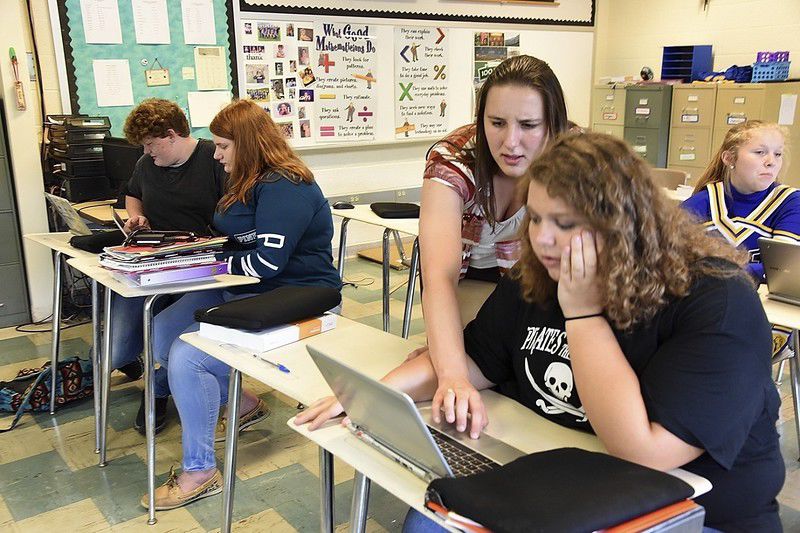Editorial: Teach math and science, not social justice
Published 11:18 am Friday, May 19, 2017

- AP file photo.
Have we reached peak social justice silliness yet? We must be close. The latest trend is teaching social justice – through math.
Social justice, of course, is a fine idea, when the emphasis is on justice and equitable treatment for all. But when it’s taken to extremes, such as assigning collective guilt to “oppressor races” and justifying violence and vandalism, it becomes a destructive force, not a constructive way of engaging others.
That’s what’s happening with math now.
“This summer, middle school math teachers can learn how to incorporate social justice issues like racism and privilege into their classrooms. ‘Teaching Social Justice through Secondary Mathematics’ is a six-week online course designed by Teach for America and offered through EdX, which provides free online classes from top universities such as Harvard University, MIT, and Columbia University,” reports the website Campus Reform.
Here’s what the course, designed for teachers, says.
“In western mathematics, our ways of knowing include formalized reasoning or proof, decontextualization, and algorithmic thinking, leaving little room for those having non-western mathematical skills and thinking processes.”
Confused? That’s probably because you assume that two plus two equals four – everywhere.
But “Teaching Social Justice through Secondary Mathematics” is here to enlighten you.
“Mathematical ethics recognizes that, for centuries, mathematics has been used as a dehumanizing tool,” the course contends. “Mathematics formulae also differentiate between the classifications of a war or a genocide and have been used to trick indigenous peoples out of land and property.”
What does this have to do with algebra, geometry or trigonometry? That’s an interesting question.
Teachers taking the course are required to read an essay by a teacher from Hawaii. The essay is titled “Why teaching about social justice matters.”
“Whether or not I talk about it, my students are bombarded with issues surrounding privilege and power every single day,” writes Christina Torres. “Activism is now so rampant that it, for better or worse, even appears in Oscar acceptance speeches. Protests are televised and publicized at the click of a button, and the Internet has turned four hash marks into weapons of mass discussion. Whether or not I talk about it, they will. Moreover, my students won’t just see these issues discussed; they live them.”
So in her view, social justice must be the central theme of every course, including math and geography and literature.
“I can show them how stories don’t just use beautiful tools like allusion and metaphor, but can be used as tools to subvert power, question normalcy and change society as we understand it,” she writes.
But is this truly empowering students? Perhaps teaching them actual math, a non-subjective subject with real answers and solutions, would be a better use of classroom time.
Because elementary and secondary math skills contribute to a better understanding of higher mathematics, engineering, computers and the sciences. Students with a solid grounding in math can go on to enjoy greater success in other academic subjects
That’s real empowerment. That’s what our math teachers should be teaching our kids.






